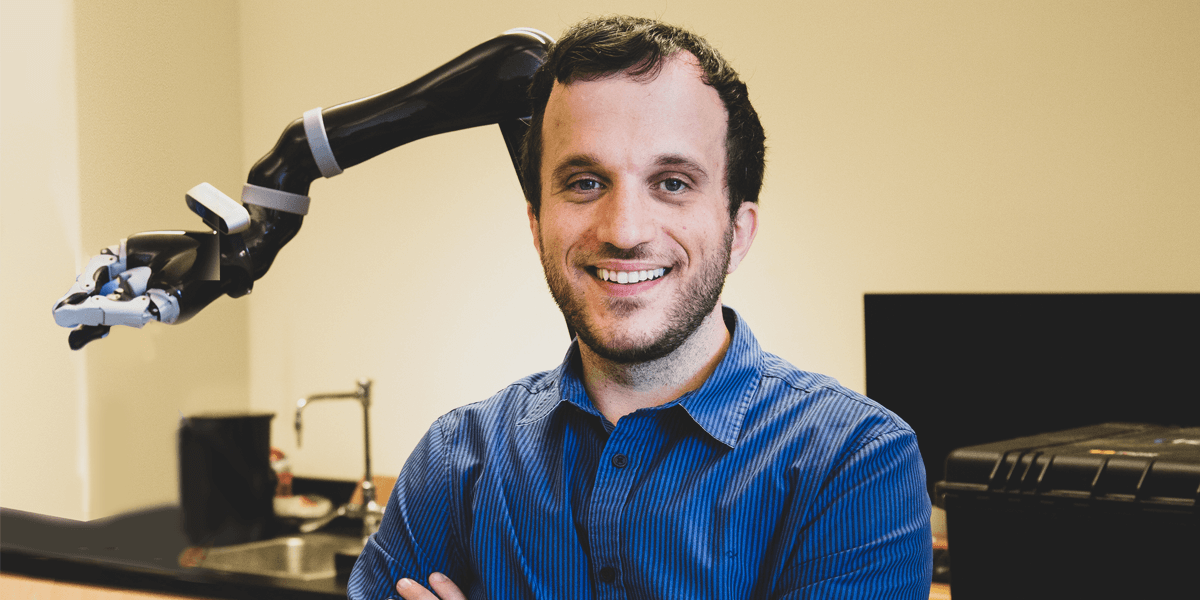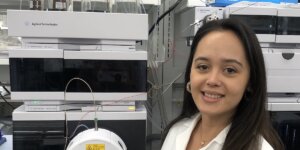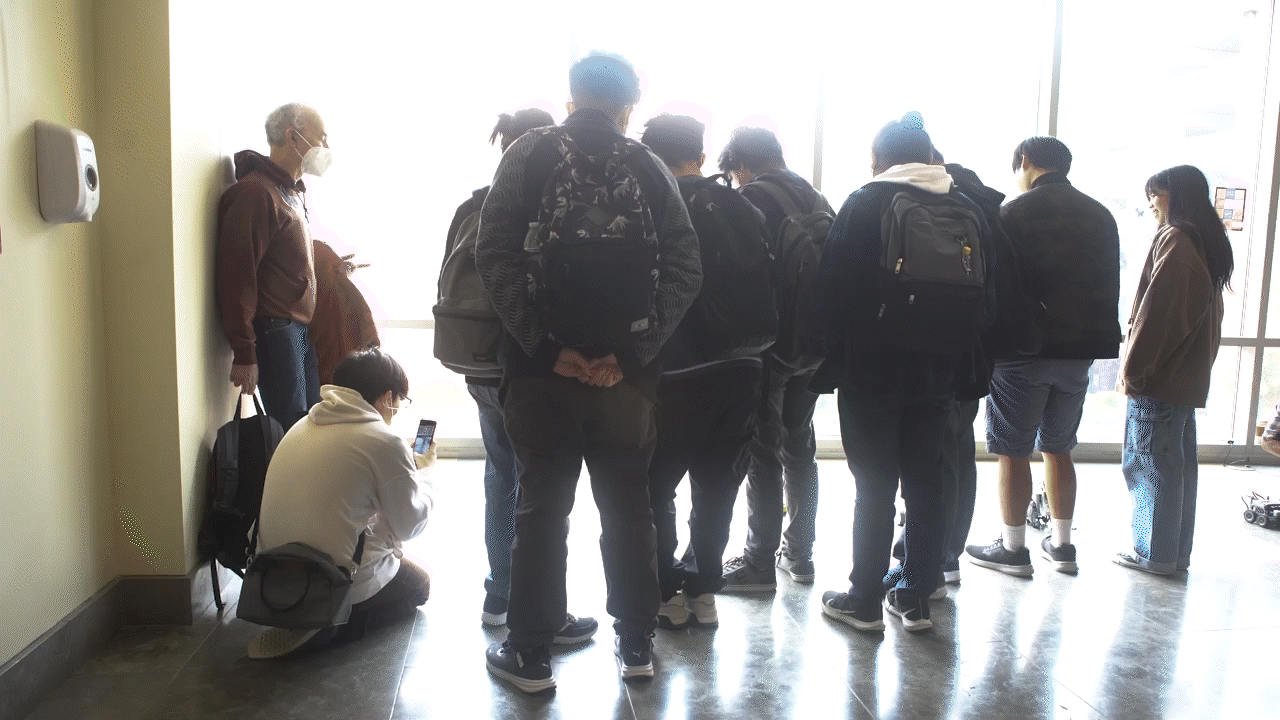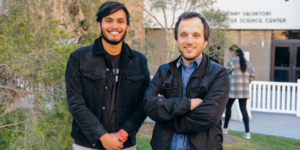
Stefanos Nikolaidis been named the recipient of the 2022 Agilent Early Career Professor Award. Photo/Haotian Mai.
Stefanos Nikolaidis, a USC Viterbi School of Engineering assistant professor of computer science, has been named the sole recipient of the 2022 Agilent Early Career Professor Award for his work in artificial intelligence and machine vision.
The Agilent Early Career Professor Award is an annual program that recognizes and supports promising research from professors who, early in their careers, show outstanding potential for future research in areas of importance to the communities Agilent serves.
Following a global call for nominations, Nikolaidis received the award for his contributions to this year’s award focus: “Development of artificial intelligence and machine vision technologies for intuitive collaborative robots to address demands for a flexible next-generation workforce in manufacturing applications.”
According to Agilent, Nikolaidis was selected based on the quality, significance, and impact of his original research contributions, particularly his focus on developing next-generation intuitive cobots—or collaborative robots—for manufacturing applications and processes.
“We are thrilled that Professor Nikolaidis has been recognized with the 2022 Agilent Early Career Professor Award, placing him as the preeminent early career faculty in the world in this area,” said Yannis C. Yortsos, dean of the USC Viterbi School of Engineering.
“We are not surprised with this selection given Professor Nikolaidis’ expertise and accomplishments in AI and robotics, and how these will help advance manufacturing in today’s rapidly changing technology landscape. Support from this award will allow him to further develop his research program and to explore new and exciting applications of AI and machine vision technologies.”
Human-robot collaboration
An expert in human-robot collaboration, Nikolaidis and his team have designed algorithms that efficiently infer a user’s physical and mental states, enabling robotic arms to assist people in a variety of tasks, such as furniture assembly, hair combing and meal preparation.
At USC, he directs the Interactive and Collaborative Autonomous Robotic Systems (ICAROS) lab, which aims to address challenging problems that arise when deploying collaborative robots in practical, real-world settings.
A key research question: how can a robot adapt to the preferences of a human teammate without explicit training or demonstrations? In a recent study, ICAROS researchers developed a robot that can predict how someone will build an IKEA bookcase and anticipate their needs in the process.
Recently, Nikolaidis has collaborated with Professor Satyandra K. Gupta, a Smith International Professor of Mechanical Engineering and Computer Science, to introduce human-robot collaboration into assembly and disassembly manufacturing tasks at the USC Center for Advanced Manufacturing.
“Effective human-robot teaming is key to increased productivity and eliminating ergonomically challenging tasks in a wide variety of applications,” said Gupta, who co-nominated Nikolaidis for the award. “Professor Nikolaidis has developed a human-robot collaboration framework based on a rigorous mathematical framework to provide quantifiable performance assurance and yet retains complexity to address real-world applications.”
Supporting human workers
Nikolaidis joined the USC Viterbi School of Engineering in 2018. Prior to this, he earned a Ph.D. from Carnegie Mellon University, an M.S. from MIT, an M.Eng. from the University of Tokyo and a B.S. from the National Technical University of Athens.
He has received best paper awards and nominations from the IEEE/ACM International Conference on Human-Robot Interaction, the International Conference on Intelligent Robots and Systems, and the International Symposium on Robotics, as well as an NSF CAREER Award (2022) for his work on “Enhancing the Robustness of Human-Robot Interactions via Automatic Scenario Generation.”
According to Agilent’s website, with support from the Agilent Early Career Professor Award, Nikolaidis’ team will develop algorithms that enable intuitive collaborative robots to efficiently support human workers in large-scale, real-world manufacturing tasks.
“I am truly honored to receive the Agilent Early Career Professor Award,” said Nikolaidis. “This award provides an exciting opportunity for my group to collaborate with Agilent experts on testing, deploying and reconfiguring intuitive collaborative robots and to make a significant impact in large-scale, world-class manufacturing processes.”
Published on July 27th, 2022
Last updated on July 27th, 2022












